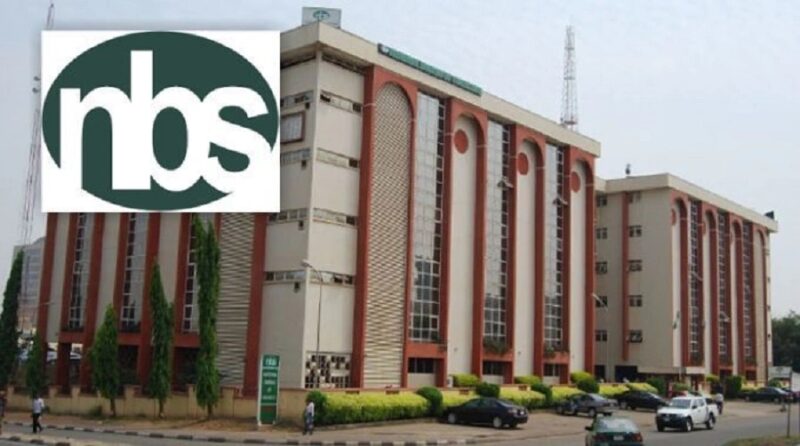1
LAGOS – In the bustling metropolis of Lagos, dispatch riders have become an indispensable part of urban life. With the city’s legendary gridlocks choking movement and frustrating daily commuters, these riders weave through congested roads with remarkable agility – delivering documents, parcels, and food orders to offices and homes. Their services have become the pulse of convenience in a fast-paced economy where time means money.
From e-commerce deliveries to inter-office dispatch services, the contribution of dispatch riders to Nigeria’s economy is undeniable. According to the National Bureau of Statistics (NBS), Nigeria’s logistics and courier subsector grew by over 35 percent between 2020 and 2023, driven by the rise in online shopping and the booming gig economy. For many young Nigerians, dispatch riding is not only a means of livelihood but also a route out of unemployment.
However, a menacing undercurrent threatens to taint this vital service. The National Drug Law Enforcement Agency (NDLEA) has uncovered a disturbing trend – dispatch riders being used as unsuspecting or willing couriers in drug trafficking operations.
The Growing Concern: Riders As Drug Couriers
On July 30, 2025, NDLEA operatives carried out intelligence-led stop-and-search operations across Gwarimpa, Jahi and Galadimawa in the Federal Capital Territory (FCT). The agency announced the arrest of three dispatch riders – Sabo Sule (24), Samuel Nnamdi (28) and Idris Jibrin (28) – for distributing 149.8 grammes of ‘Canadian Loud’, a potent cannabis strain. Two days later, along the Abaji–Gwagwalada Expressway, they arrested two more suspects with 91.1kg of ‘skunk’ cannabis.
Beyond the FCT, in Lagos the NDLEA disclosed that a dispatch rider named Joseph Michael was arrested in Mushin with 3.3kg of ‘Colorado’, a synthetic cannabis strain; and another suspect, Ibrahim Sulaiman, was apprehended in Iwaya-Yaba with 16.5 litres of ‘skuchies’ (cannabis-based drink).
The agency noted that some of these riders either knowingly participate in drug peddling or are duped by criminal clients who conceal contraband within parcels meant for delivery.
NDLEA Chairman, Brig. Gen. Buba Marwa (rtd.), warned that the phenomenon is “an emerging trend that calls for strict regulation and collaboration between transport authorities, courier companies, and law enforcement.”
Why The Risk?
Several factors converge to make dispatch riders particularly vulnerable to infiltration by drug traffickers and other criminal networks.
First, the very qualities that make them efficient service providers also make them attractive tools for traffickers. Their mobility, agility, and low profile allow them to weave through congested city roads, park close to destinations, and deliver packages swiftly without drawing undue attention. In urban centres like Lagos, where speed is prized, such ease of movement offers cover that traffickers may easily exploit to conceal illicit activities.
Secondly, regulation gaps across the country have created fertile ground for abuse. In many jurisdictions, dispatch riders operate under minimal oversight, making it easy for illicit actors to masquerade as legitimate couriers. For instance, the Directorate of Road Traffic Services (DRTS) in the Federal Capital Territory (FCT) had to suspend the registration of new dispatch riders in February 2024, citing persistent regulatory non-compliance. Out of the 2,500 riders already cleared by the directorate, many were found to remain unruly or untraceable. This underscores the broader regulatory weaknesses that pervade the sector.
Another key vulnerability lies in the informality of the business model. The delivery sector in Nigeria is largely dominated by small-scale operators and freelancers working on cash-based arrangements with little documentation. The absence of structured contracts, traceable payment systems, and verified customer identities makes it difficult for law-enforcement agencies to track suspicious deliveries or follow financial trails linked to drug movements. This informal and cash-driven nature of the trade allows traffickers to blend seamlessly into the legitimate courier network.
Additionally, poor monitoring during night-time operations further heightens the risk. Many riders work late into the night or at dawn, when oversight is weakest. In Lagos, the State Ministry of Transportation only recently, in September 2025, mandated all riders to wear reflective jackets and visibility tapes for night-time operations – a move that inadvertently highlighted the extent of earlier regulatory neglect. Without proper supervision, these nocturnal deliveries often provide a convenient window for traffickers to move illicit substances under the guise of legitimate business.
Gaps In Oversight And The Regulatory Web
While the Lagos State Ministry of Transport oversees traffic management and the operational safety of motorcycles, its jurisdiction does not extend to inspecting or verifying the contents carried by courier riders.
Speaking with Daily Independent, Engr. Olasunkanmi Ojowuro, Director of Transport Operations at the Ministry, admitted the limitations.
“The Lagos Ministry of Transport is in charge of managing the movement of goods and services -such as motorcycles used for courier logistics,” he explained. “However, our function is to ensure that the motorcycle is in good order, that it’s roadworthy, and that the rider complies with all safety measures. When it comes to checking what they are carrying, we are not structurally empowered to do that.”
Ojowuro acknowledged that the ministry is aware of reports from NDLEA about dispatch riders involved in trafficking illicit substances.
“We are working with other agencies, including the police and the Ministry of Health,” he said. “The police have the right to check what is in the box of a courier or logistics rider. It goes beyond our own power to check that.”
His comments highlight a critical regulatory gap. The ministry focuses on vehicle safety and operational compliance, while agencies like NIPOST’s Courier and Logistics Regulatory Department (CLRD) are responsible for licensing courier companies. Yet, the rise of informal, unregistered operators – many working independently without corporate affiliation – has created a loophole exploited by criminal networks.
“There are so many entities operating now that are illegal, not recognised by the state,” Ojowuro admitted. “If we don’t capture you on our proposed regulatory app, it means you are operating unlicensed, and the law will catch up with you.”
Technology And The Quest For Order
To bring sanity to the sector, the Lagos State Ministry of Transport is developing a digital application designed to monitor and regulate courier operations. The initiative, still in its consultative stage, aims to integrate government, operators, and customers into a single monitoring system.
“That app will have an interface with the operator, the customer, and the government,” Ojowuro revealed. “It’s a three-way app. With that, we can identify illegal operators and monitor their activities. We are currently at the stage of stakeholder engagement, and the project will operate under a public-private partnership (PPP) model.”
The ministry is also enforcing safety standards. In September, all dispatch riders were mandated to wear reflective jackets for visibility and safety, especially during night operations. “Some have complied, some are yet to comply,” he said. “But once enforcement starts, compliance will rise. It’s for safety purposes.”
Criminal Elements Within A Vital Sector
Ojowuro was quick to clarify that not all dispatch riders are complicit in illicit trade. “There are criminal elements everywhere in the world and in all sectors,” he noted. “It may not even be the operator – it could be the user. Someone might want to ferry drugs and won’t tell the operator what’s inside the parcel. Many riders don’t even know what they are delivering.”
He suggested that advocacy could help reduce the risk of riders unknowingly transporting contraband. “Sometimes what they do is that before wrapping the parcel, they ask to see what’s inside. But this isn’t common practice, especially among informal operators without offices,” he explained. “We need to organise that sector as a whole because there are so many players there. It’s providing employment and food on people’s tables.”
Indeed, data from the Courier and Logistics Management Institute (CLMI) indicates that over 85,000 registered courier riders operate across Nigeria, with Lagos alone accounting for more than 40 percent. However, informal riders – estimated at more than twice that number – work outside the regulatory framework, posing both safety and security risks.
According to an NDLEA official, who spoke with Daily Independent on condition of anonymity, “Drug traffickers are increasingly exploiting the informal dispatch system due to its anonymity and speed. Some riders are paid huge sums to look the other way, while others are completely unaware of their role in criminal activity.”
Security experts warn that without tighter regulation and collaboration among relevant agencies, dispatch logistics could become a new frontier for organised crime.
Consequences For Urban Transport And Safety
The infiltration of dispatch riders into drug-trafficking channels carries implications that go far beyond criminal justice. It strikes at the very heart of urban logistics and public confidence in one of Nigeria’s fastest-growing micro-economies.
When riders are implicated in the distribution of narcotics, the ripple effect is immediate: members of the public begin to view every courier on a motorcycle with suspicion. This erosion of trust undermines the legitimate value of the delivery economy – one that has become indispensable to city life, particularly in metropolises like Lagos, Abuja and Port Harcourt.
More troublingly, the clandestine use of motorcycles for transporting illicit substances poses acute security and safety risks. The movement of drugs through crowded streets not only fuels crime but also increases the potential for violence, theft, and dangerous road chases when offenders are pursued by law-enforcement officers. Many dispatch riders, already navigating chaotic traffic conditions, are exposed to heightened risks of accidents – often with fatal consequences.








